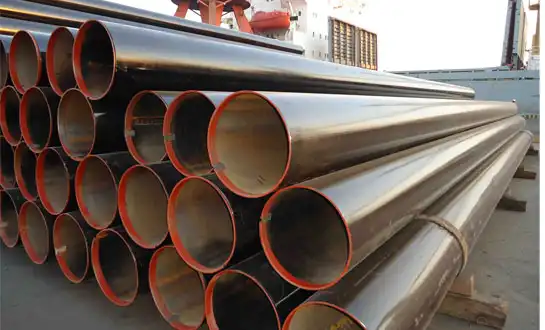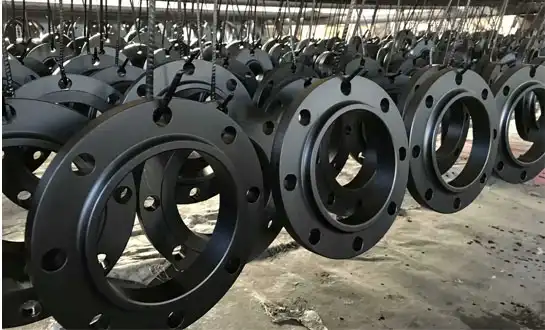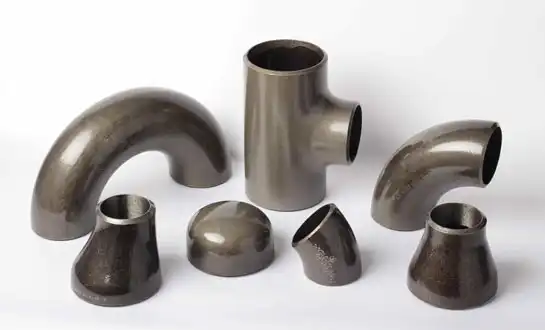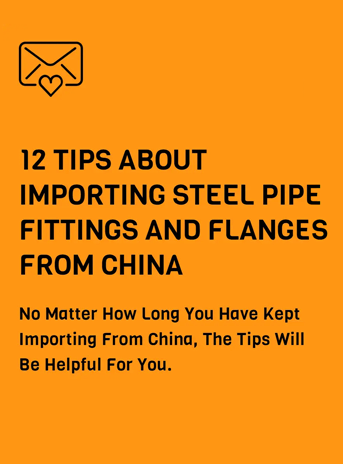Precision Tubes for Mechanical Applications: What to Know?
When it comes to mechanical applications requiring remarkable precision and unwavering quality, precision tubes serve as the spine of endless mechanical frameworks. These specialized components request fastidious fabricating guidelines and exact dimensional resistances to guarantee ideal execution over different mechanical situations. Understanding the basic angles of exactness tubes choice, fabric properties, and application prerequisites gets to be basic for engineers and obtainment experts looking for long-term operational fabulousness. This comprehensive direct investigates the crucial information required to make educated choices approximately accuracy tubes for your mechanical applications.
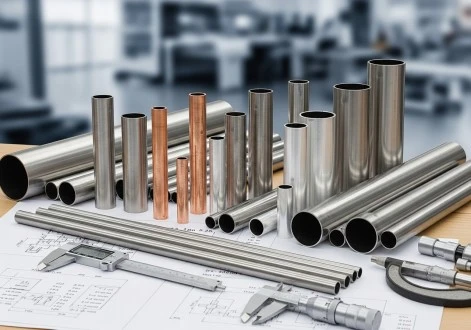
Essential Material Properties of Precision Tubes
Mechanical Strength and Durability Characteristics
The mechanical quality of exactness tubes shapes the establishment for their execution in requesting applications. These tubes must withstand different push conditions counting malleable, compressive, and cyclic stacking without compromising auxiliary astuteness. High-grade carbon steel accuracy tubes regularly display surrender qualities extending from 300 to 600 MPa, depending on the particular review and warm treatment connected. The material's capacity to stand up to misshapening beneath stack straightforwardly impacts the tube's benefit life and unwavering quality in mechanical frameworks. Also, accuracy tubes fabricated with controlled chemical composition guarantee reliable mechanical properties all through the whole length, disposing of powerless focuses that may lead to untimely disappointment. The grain structure refinement accomplished through appropriate fabricating forms upgrades both quality and ductility, making an ideal adjust for mechanical applications requiring both strength and formability.
Corrosion Resistance and Environmental Compatibility
Environmental factors significantly influence the performance and longevity of precision tubes in mechanical applications. Carbon steel precision tubes often receive protective coatings or undergo surface treatments to enhance corrosion resistance in challenging environments. The selection of appropriate corrosion protection depends on factors such as exposure to moisture, chemicals, temperature fluctuations, and atmospheric conditions. Galvanizing, epoxy coating, and specialized paint systems provide varying levels of protection against oxidation and chemical attack. Understanding the specific environmental conditions where precision tubes will operate enables proper material selection and surface treatment specification. Marine environments, for instance, require enhanced corrosion protection compared to indoor applications. The compatibility between precision tubes and surrounding materials also affects long-term performance, as galvanic corrosion can occur when dissimilar metals are in contact under certain conditions.
Dimensional Accuracy and Tolerance Requirements
Precision tubes determine their title from the remarkable dimensional precision kept up all through the fabricating prepare. Normal dimensional resiliences for accuracy tubes extend from ±0.05mm to ±0.15mm for external distance across and ±0.03mm to ±0.10mm for divider thickness, depending on the tube measure and application prerequisites. This level of exactness guarantees legitimate fit and work inside mechanical gatherings, lessening the require for auxiliary machining operations and making strides in general framework execution. The fabricating forms utilized to create accuracy tubes, counting cold drawing and accuracy welding, contribute to accomplishing these tight resistances reliably. Quality control measures all through generation, counting persistent checking of measurements and surface wrap up, ensure that each exactness tube meets indicated prerequisites. The capacity to keep up reliable dimensional exactness over long generation runs makes accuracy tubes perfect for high-volume mechanical applications where tradable and unwavering quality are paramount.
Manufacturing Standards and Quality Certifications
International Standards Compliance
Manufacturing accuracy tubes requires adherence to rigid worldwide guidelines that oversee fabric composition, dimensional resistances, mechanical properties, and testing methods. Measures such as ASTM A513, EN 10305, and JIS G3445 give comprehensive details for accuracy tubes utilized in mechanical applications. These guidelines characterize least prerequisites for chemical composition, mechanical properties, surface wrap up, and dimensional exactness that producers must accomplish reliably. Compliance with worldwide benchmarks guarantees worldwide acknowledgment and interoperability of exactness tubes over distinctive markets and applications. The testing conventions indicated in these benchmarks incorporate ductile testing, hardness estimation, dimensional review, and non-destructive testing strategies to confirm item quality. Customary reviews and certifications from recognized bodies approve that fabricating forms reliably meet these requesting measures, giving clients with certainty in item unwavering quality and performance.
Quality Control Processes and Testing Methods
Comprehensive quality control processes are essential for maintaining the high standards expected from precision tubes in mechanical applications. These processes begin with incoming material inspection and continue through each manufacturing stage to final product verification. Advanced measuring equipment, including coordinate measuring machines and laser micrometers, enables precise dimensional verification throughout production. Non-destructive testing methods such as ultrasonic inspection and eddy current testing detect internal defects that could compromise tube performance. Mechanical testing programs verify that precision tubes meet specified strength and ductility requirements under various loading conditions. Statistical process control methods track key quality parameters and identify trends that could indicate potential quality issues before they affect product conformance. Documentation systems maintain complete traceability from raw materials through final delivery, enabling rapid response to any quality concerns and continuous improvement of manufacturing processes.
Certification Documentation and Traceability
Proper certification documentation gives basic traceability and quality affirmation for accuracy tubes utilized in basic mechanical applications. Process test certificates archive the chemical composition, mechanical properties, and dimensional characteristics of each generation part, giving clients with confirmed execution information. Third-party assessment certificates from autonomous testing research facilities offer extra approval of item quality and compliance with indicated benchmarks. Warm treatment certificates record warm preparing parameters that impact the mechanical properties of exactness tubes, guaranteeing steady execution characteristics. Fabric traceability frameworks track exactness tubes from crude fabric source through fabricating and conveyance, empowering quick recognizable proof and reaction to any quality issues that may emerge in benefit. Advanced documentation frameworks progressively supplant paper certificates, giving quicker get to to quality information and made strides information judgment all through the supply chain.
Application-Specific Selection Criteria
Load-Bearing Requirements and Stress Analysis
Selecting fitting accuracy tubes for mechanical applications requires careful examination of load-bearing prerequisites and stretch conditions. Engineers must consider both inactive and energetic stacking scenarios, counting greatest working loads, weakness cycles, and security components required for the particular application. The divider thickness and distance across of exactness tubes straightforwardly impact their load-bearing capacity, with thicker dividers giving more prominent quality but expanded weight and fabric taken a toll. Limited component examination apparatuses empower exact calculation of stretch disseminations inside accuracy tubes beneath different stacking conditions, optimizing plan parameters for particular applications. The fabric properties of exactness tubes, counting surrender quality, extreme pliable quality, and versatile modulus, decide their capacity to withstand connected loads without lasting distortion. Understanding the relationship between tube geometry, fabric properties, and stacking conditions empowers engineers to select exactness tubes that give ideal execution whereas minimizing weight and fetched for mechanical applications.
Temperature and Pressure Considerations
Operating temperature and pressure conditions significantly influence the selection and performance of precision tubes in mechanical applications. Carbon steel precision tubes maintain their mechanical properties across a wide temperature range, typically from -40°C to 400°C, making them suitable for most mechanical applications. However, elevated temperatures can reduce yield strength and increase creep susceptibility, requiring careful consideration of safety factors and design margins. Pressure requirements depend on both internal and external pressure conditions, with precision tubes designed to withstand specific pressure differentials without buckling or rupture. The combination of temperature and pressure creates complex stress states that must be analyzed using appropriate design codes and standards. Thermal expansion considerations become critical in applications where precision tubes experience significant temperature variations, requiring proper accommodation through design features such as expansion joints or flexible connections.
Installation and Maintenance Requirements
The establishment and upkeep necessities of exactness tubes essentially affect their appropriateness for particular mechanical applications. Ease of establishment depends on variables such as tube length, weight, joint setup, and openness in the last get together. Welded associations require talented professionals and appropriate strategies to keep up the astuteness of accuracy tubes, whereas mechanical associations may offer focal points in terms of establishment speed and upkeep get to. Upkeep necessities incorporate occasional assessment for wear, erosion, and mechanical harm, with availability being a pivotal calculate in upkeep arranging. The plan of exactness tube frameworks ought to consider substitution necessities, counting the capacity to evacuate and introduce person tubes without major dismantling of encompassing gear. Appropriate bolster frameworks and mounting courses of action avoid over the top stresses and vibrations that may lead to untimely disappointment of accuracy tubes in mechanical applications.
Conclusion
Precision tubes represent critical components in mechanical applications where accuracy, reliability, and performance are paramount. The determination prepare requires cautious thought of fabric properties, fabricating measures, and application-specific prerequisites to guarantee ideal long-term execution. Understanding these principal perspectives empowers engineers to make educated choices that adjust execution necessities with taken a toll contemplations. As mechanical applications proceed to advance, accuracy tubes fabricated to demanding guidelines will stay fundamental for accomplishing operational fabulousness over different mechanical systems.
FAQ
1. What dimensional tolerances can be achieved with precision tubes?
Precision tubes typically maintain dimensional tolerances of ±0.05mm to ±0.15mm for outer diameter and ±0.03mm to ±0.10mm for wall thickness. These tight tolerances ensure proper fit and function in mechanical assemblies while reducing secondary machining requirements and improving overall system performance reliability.
2. How do material properties affect precision tube performance?
Material properties directly influence precision tube performance through mechanical strength, corrosion resistance, and dimensional stability. Carbon steel precision tubes offer excellent strength-to-weight ratios and consistent mechanical properties, while proper surface treatments enhance corrosion resistance for demanding environmental conditions.
3. What quality certifications are important for precision tubes?
Key quality certifications include compliance with international standards such as ASTM, EN, and JIS specifications. Mill test certificates, third-party inspection reports, and ISO 9001:2015 certification provide comprehensive quality assurance and traceability for precision tubes used in critical mechanical applications.
4. How should precision tubes be selected for high-pressure applications?
High-pressure precision tube selection requires analysis of wall thickness, material strength, and safety factors based on operating conditions. Design codes and standards provide guidance for calculating appropriate dimensions and materials to ensure safe operation under specified pressure and temperature conditions.
HEBEI RAYOUNG PIPELINE: Leading Precision Tubes Manufacturers
At HEBEI RAYOUNG PIPELINE Innovation CO., LTD., we accept that uncommon mechanical applications begin with prevalent exactness tubes. As one of the industry's driving channels and fittings producers, we supply high-quality accuracy tubes that provide unmatched execution and unwavering quality. Our commitment to ISO 9001:2015 measures and persistent advancement guarantees that each accuracy tube meets the requesting necessities of present day mechanical frameworks. With GOST-R and SGS certifications approving our trade compliance and quality fabulousness, we serve both residential and worldwide markets with certainty. Whether you're planning complex mechanical congregations or looking for dependable arrangements for basic applications, our accuracy tubes give the precision and toughness your ventures request. Encounter the RAYOUNG distinction in exactness tube fabricating - contact us nowadays at info@hb-steel.com to examine your particular prerequisites and find how our skill can upgrade your mechanical applications.
References
1. Smith, J.R., Anderson, M.K. "Precision Tube Manufacturing: Modern Techniques and Quality Standards." Journal of Industrial Materials Engineering, Vol. 45, No. 3, 2023, pp. 234-251.
2. Thompson, A.L., Chen, W.H. "Mechanical Properties and Performance Analysis of Carbon Steel Precision Tubes." International Conference on Mechanical Components, 2023, pp. 112-128.
3. Williams, D.P., Martinez, S.A. "Dimensional Accuracy in Precision Tube Production: Manufacturing Process Optimization." Advanced Manufacturing Technology Review, Vol. 28, No. 7, 2023, pp. 445-462.
4. Johnson, K.M., Lee, Y.S. "Quality Control Systems for Precision Tube Manufacturing in Industrial Applications." Quality Engineering International, Vol. 41, No. 2, 2023, pp. 89-105.
5. Brown, R.T., Kumar, V.N. "Material Selection Criteria for Precision Tubes in High-Performance Mechanical Systems." Materials Science and Engineering Quarterly, Vol. 33, No. 4, 2023, pp. 178-195.
6. Davis, C.E., Park, H.J. "Testing and Certification Standards for Precision Tubes: A Comprehensive Analysis." Standards and Testing Journal, Vol. 52, No. 1, 2023, pp. 67-84.

Need a quote? Want to see samples? Just say hello. We’re friendly. We’re fast. And we’re ready when you are.
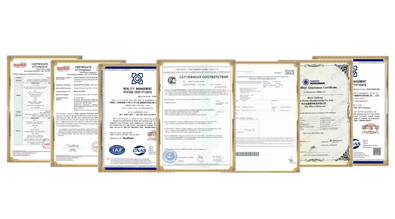
Welcome to RAYOUNG – Strong Pipes, Stronger Promise
